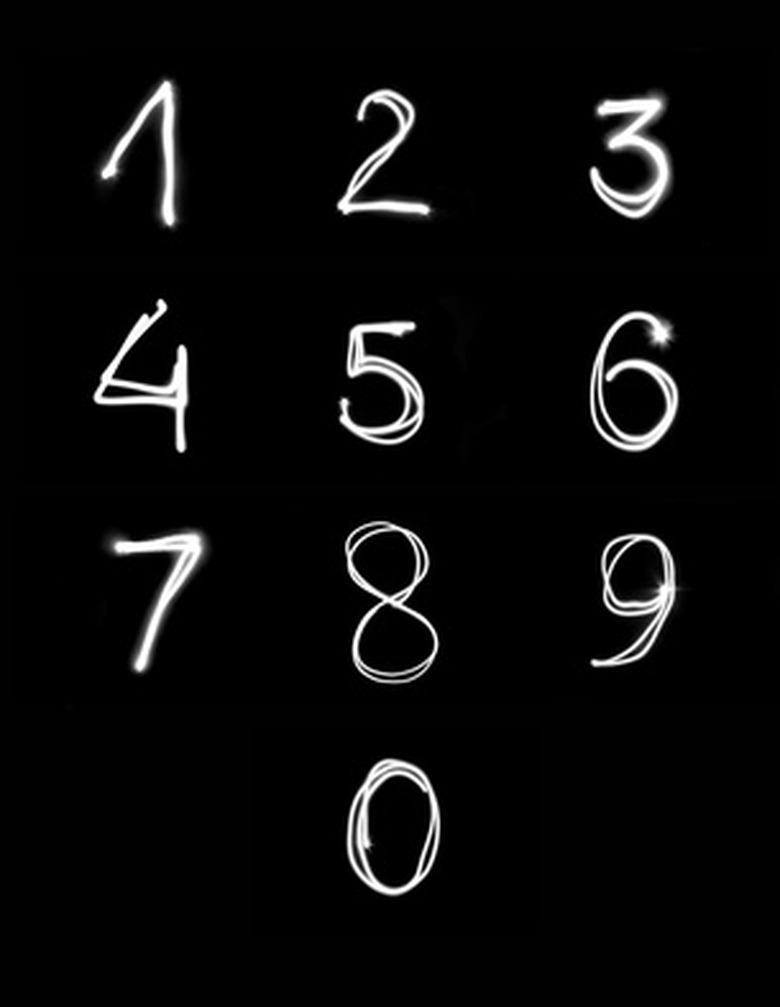What Happens When You Raise A Number To A Fraction?
When you "raise a number to a power," you're multiplying the number by itself, and the "power" represents how many times you do so. So 2 raised to the 3rd power is the same as 2 x 2 x 2, which equals 8. When you raise a number to a fraction, however, you're going in the opposite direction — you're trying to find the "root" of the number.
Terminology
Terminology
The mathematical term for raising a number to a power is "exponentiation." An exponential expression has two parts: the base, which is the number you are raising, and the exponent, which is the "power." So when you raise 2 to the 3rd power, the base is 2 and the exponent is 3. Raising the base to the 2nd power is commonly called squaring the base, while raising it to the 3rd power is commonly called cubing the base. Mathematicians usually write exponential expressions with the exponent in superscript — that is, as a small number to the upper right of the base. Because some computers, calculators and other devices don't handle superscript very well, exponential expressions are also commonly written like this: 2^3. The caret — the upward-pointing symbol — tells you that what follows is the exponent.
Roots
Roots
In math, "roots" are a bit like exponents in reverse. For example, take "2 to the 4th power," abbreviated as 2^4. That's equal to 2 x 2 x 2 x 2, or 16. Since 2 multiplied by itself four times equals 16, the "4th root" of 16 is 2. Now look at the number 729. That breaks down to 9 x 9 x 9 — so 9 is the 3rd root of 729. It also breaks down to 3 x 3 x 3 x 3 x 3 x 3 — so 3 is the 6th root of 729. The 2nd root of a number is commonly called the square root, and the 3rd root is the cube root.
Fractional Exponents
Fractional Exponents
When the exponent is a fraction, you're looking for a root of the base. The root corresponds to the denominator of the fraction. For example, take "125 raised to the 1/3 power," or 125^1/3. The denominator of the fraction is 3, so you're looking for the 3rd root (or cube root) of 125. Because 5 x 5 x 5 = 125, the 3rd root of 125 is 5. Thus, 125^1/3 = 5. Now try 256^1/4. You're looking for the 4th root of 256. Since 4 x 4 x 4 x 4 = 256, the answer is 4.
Numerators Other Than 1
Numerators Other Than 1
The fractional exponents discussed to this point — 1/3 and 1/4 — have each had a numerator of 1. If the numerator is something other than 1, the exponent is actually instructing you to perform two operations: finding a root and raising to a power. For example, take 8^2/3. The denominator "3" tells you you're looking for a cube root; the numerator "2" tells you that you'll be raising to the 2nd power. It doesn't matter which operation you perform first. You'll get the same result either way. So you could start by taking the 3rd root of 8, which is 2, and then raising that to the 2nd power, which would give you 4. Or you could start by raising 8 to the 2nd power, which equals 64, and then taking the 3rd root of that number, which is 4. Same result.
A Universal Rule
A Universal Rule
In fact, the rule of "numerator as power, denominator as root" applies to all exponents — even whole-number exponents and fractional exponents with a numerator of 1. For example, the whole number 2 is the equivalent of the fraction 2/1. So the exponential expression 9^2 is "really" 9^2/1. Raising 9 to the 2nd power gives you 81. Now you have to get the "1st root" of 81. But the 1st root of any number is the number itself, so the answer remains 81. Now look at the expression 9^1/2. You could start by raising 9 to the "1st power." But any number raised to the 1st power is the number itself. So all you have to do is get the square root of 9, which is 3. The rule still applies, but in these situations, you can skip a step.
Cite This Article
MLA
Merritt, Cam. "What Happens When You Raise A Number To A Fraction?" sciencing.com, https://www.sciencing.com/happens-raise-number-fraction-8535078/. 24 April 2017.
APA
Merritt, Cam. (2017, April 24). What Happens When You Raise A Number To A Fraction?. sciencing.com. Retrieved from https://www.sciencing.com/happens-raise-number-fraction-8535078/
Chicago
Merritt, Cam. What Happens When You Raise A Number To A Fraction? last modified August 30, 2022. https://www.sciencing.com/happens-raise-number-fraction-8535078/
